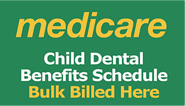- New Patient Special for $150
- Terms and Conditions Apply
- Learn More!

The wisdom teeth (molars) typically erupt between age 17 and 25, and this is a normal part of mouth development. For many people, the wisdom teeth can contribute to the development of oral health issues including impaction, infection and overcrowding, which is why wisdom tooth extractions are a common occurrence to reduce the risk of dental complications arising later in life. Whilst not everyone will need to have their wisdom teeth removed, it is important to be aware of the reasons for extraction. In this blog post, Central Brunswick Dental Centre will be sharing some common symptoms which may necessitate wisdom teeth extraction.
Why do some people require wisdom tooth extraction?
Whilst most people develop four wisdom teeth (two on top, two on the bottom), some people never develop them, or they may never erupt into the oral cavity. Humans today have much smaller jaws than our ancestors, and as such the presence of wisdom teeth can in some cases lead to problems. Crowding can occur due to a lack of space, causing the wisdom teeth to press against adjacent teeth which can cause teeth to become crooked/overlapping. A lack of room can also cause wisdom teeth to grow on a weird angle and become “impacted”, preventing them from fully emerging through the gum.
Some of the most common reasons for extraction include:
An initial evaluation of wisdom teeth typically occurs before reaching 20 years of age. Your dentist will advise you on whether extraction may be necessary to alleviate pain and reduce the risk of serious dental complications.
Symptoms of Problem Wisdom Teeth
Gum inflammation, pain and sensitivity at the rear of the mouth, bad breath, persistent pain, a stiff jaw and sinus problems (congestion, headache etc.) are some of the most common symptoms of problem wisdom teeth.
The Wisdom Teeth Extraction Process
Wisdom teeth extraction is a straightforward process, and your dentist will perform a risk assessment and provide you with an overview of the procedure and estimated recovery times. Surgery is typically performed under local anaesthetic, which numbs the location and eliminates pain. A referral to a specialist Oral Maxillofacial Surgeon and/or General sedation are also options for more challenging cases.
The extraction process involves your dentist/oral surgeon disconnecting the connective tissue around the wisdom teeth, before then removing the problem teeth and finally treating and applying a gauze to the extraction site. You may use over the counter pain relievers throughout the recovery period. Most patients are able to resume normal activity the following day, but you should avoid hard foods for at least 24 hours.
Painful Wisdom Teeth? Book an Appointment Today
Dentists at Central Brunswick Dental Centre can examine your wisdom teeth and advise you on whether or not extraction is advisable. Book an appointment by calling (07) 3216 1100 today.






Fill in the form and our friendly team will be in touch with you monumentarily
Sed ut perspiciatis unde omnis iste natus error sit voluptatem accusantium dolor emquesit voluptatem laudantiu.
Dr Jacky is extremely knowledgeable around teeth and gum health ! Extremely professional and makes you feel comfortable and makes you laugh . Lauren, the dental nurse, is also all above! I'm so happy ... Read More
Highly recommended Dr.Jacky. He is very caring and skillful during the filling process since I have been very nervous with “dentist”. After the work done and the next day I don’t feel any pain o... Read More
I have been going here for several years and so now does my family of all ages. We all use the different dentists and are all happy. I use Dr Jacky who is very professional, honest, caring and most ... Read More
BEST DENTIST IN BRISBANE! Had two fillings today, Dr Jacky is so attention to detail , very kind and generous! Will definitely look after my teeth 🦷 🦷
Simply the best and most comfortable procedures I’ve ever had. I always feel welcome and relaxed in the hands of Bryce and Lauren in this cooly designed , simple yet highly professional clinic. Alwa... Read More
